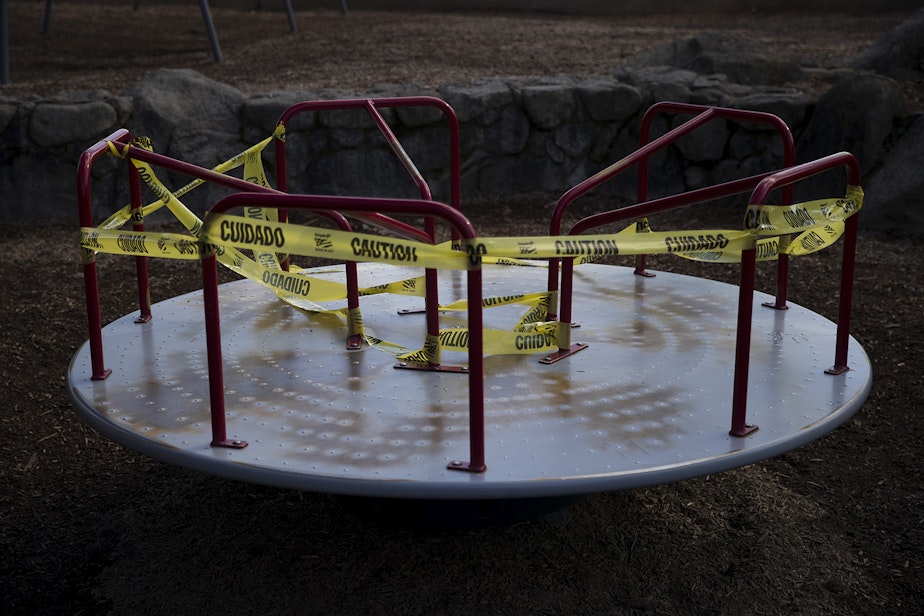COVID-19 news update: Tuesday edition

Believe it or not, it's been 32 days since Washington's coronavirus outbreak officially started. That's when community transmission was first reported in the state.
There are a lot of new developments to follow each day. KUOW newscaster Paige Browning updates us on where things stand.
The following interview has been lightly edited for clarity.
We keep hearing about the curve of cases and modeling, this as people try to predict what happens next in the outbreak. What are the models telling us today?
It's important to remember that these are really just predictions. We've never seen this coronavirus before. We don't know where it's going to go.
But the modeling now shows Washington's outbreak will be at its worst at the end of April. That's what the University of Washington predictions say.
April 30 is when the model now says we'll have the most people in the hospital. That means right now, this week, is when the virus will spread the most.
Sponsored
Do the models confirm this then?
These are models based on the cases we know about so far. But some critics say this pandemic might not follow such a smooth curve. Instead, it could continue for months on end. That could be true. That's why I think a second study we saw this week is important.
This shows that the physical distancing that we've been doing has slowed the spread of COVID-19 in Seattle. Analysis by the Bellevue-based Institute of disease modeling shows that infected people are not passing it on to as many people as they were in February.
When it comes to physical distancing, our Governor Jay Inslee says officials could start enforcing the stay at home order. Am I at risk of getting arrested if I leave my house and I can't prove that’s an essential errand?
It's a fair question. The state has authority to arrest you, and to file charges against a business, but that's really a last resort. Gov. Jay Inslee just says do what you can to follow the order — stay at home. Here's what he says is not okay:
Sponsored
“We really discourage unnecessary driving outside of your immediate area. You ought to be able to find a place, you know, fairly close to walk, because when you do do those trips, you're stopping at the gas station, you're buying a donut somewhere, you're having more interaction that’s really not necessary.”
He's just saying stay close to home.
There's a new way of reporting people. If we see someone or suspect something, does the State want us to report?
They do want to hear reports. If a business is open and it's not supposed to be, you can report that on the governor's website.
Or if people are having a party or a gathering in public, call a local police department, they say, but please do not call 911.
Sponsored
I wanted to ask you about face masks. We have been told until now that we need to save them for healthcare workers, that we, the public, don't need to wear them in public. The message is starting to shift on this a bit. What is the debate about?
This is such a debate this week. In the past few days, a number of scientists have come out saying we need to wear face masks in public so we don't spread it to each other. But the CDC and the World Health Organization continue to say the opposite. They say it's not necessary to wear a mask if you're healthy and not caring for a sick person.
Locally, King County's Executive Dow Constantine says they also are not currently recommending it:
“In general, I'm not wearing a mask. I bet in a few weeks, we would have lots more personal protective equipment available. And the question would be an easy one to answer.”
I think that's a pretty interesting perspective. He's saying we should wait to recommend masks for the public until we've got enough for health officials.
Sponsored
Dow Constantine also made some news today talking about childcare that will be made available for all first responders.
Yes. Constantine announced today that childcare will be free in all of King County during this outbreak for kids of health care workers, firefighters, and other first responders.
It will cost them $2 million to pay for this, which they're taking out of a Sound Transit Education Fund.
Listen to the interview by clicking the play button above.






